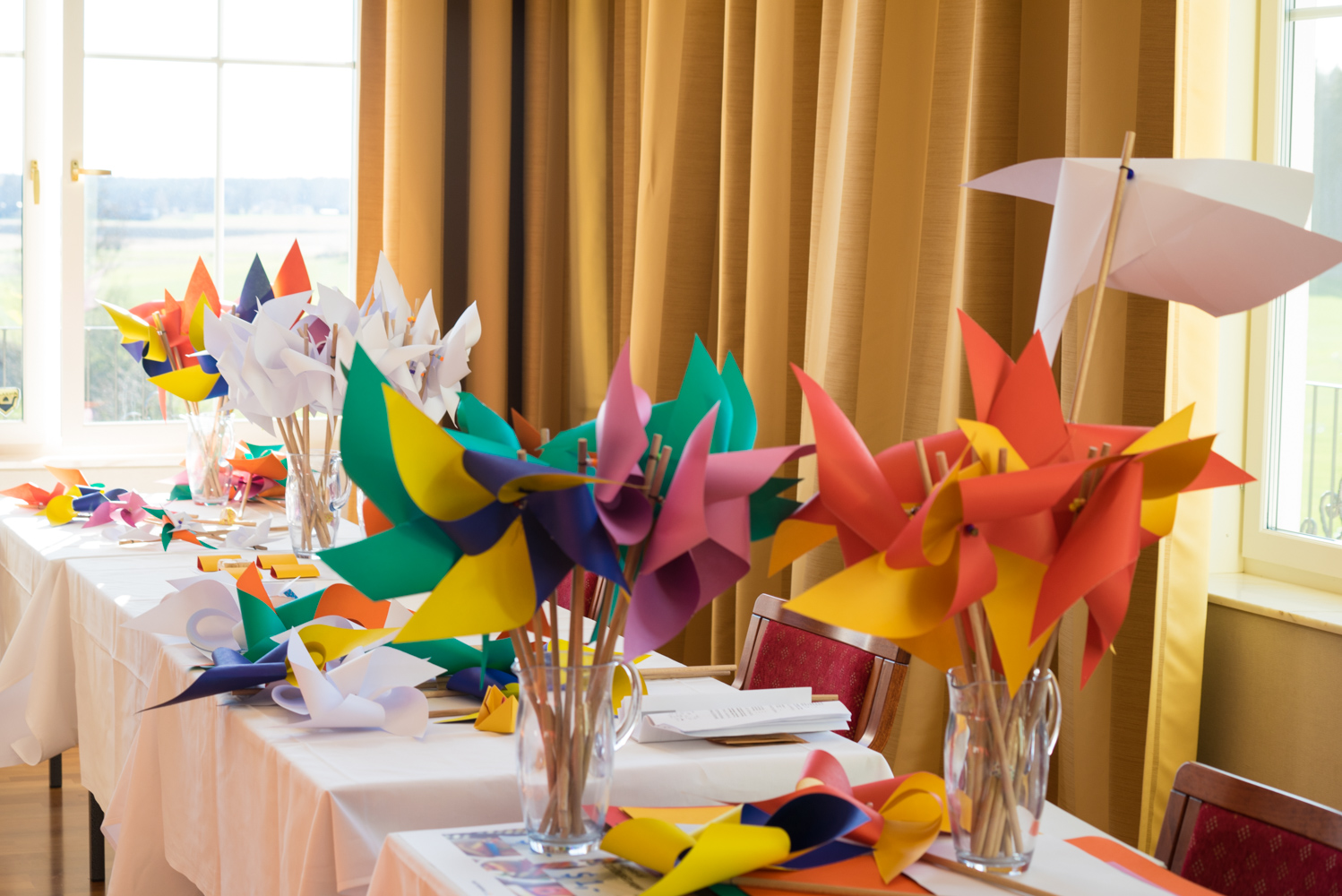Play your way to success with agile methods

In a business context, how do you become more ‘agile’? And how can you encourage others to be dynamic and mobile in their thinking?
For some years, we have set great store on agile workshop methods at the various events we run. The ingredients are simple enough: first, you need a group of top executives, second, a theme that is difficult to grasp, and third, a whole lot of imagination.
The participants are given a task. They have to examine their subject very precisely, looking at it from all aspects, thinking creatively, going outside the box, finding new paths to a solution and recognizing them when they appear. Above all, they have to be open to new ways of doing things. And the process itself is gradually improved as it goes along.
Our agile ingredients: inspiration and creativity.
Here’s one agile exercise, drawn from the work of inspiranten:
We asked participants at event to build windmills and sell them to customers, all under tight time pressure. Maybe that sounds simple. In practice it is anything but.
The idea:
The exercise makes participants focus on creating achievable, viable products for the customer.
Workshop members become entrepreneurs: over several rounds of the exercise, they have to manufacture products (windmills) and then sell them to customers at an optimal price. The ultimate goal is to make a profit and build a successful business.
The process:
The teams begin with a limited amount of capital and raw materials; they have to decide how to best make use of these finite means. The main task is actually building the windmills: teams are only given a short planning phase, then they are up against the clock. In the meantime, clients are defining their key selection and buying criteria – after each round, they will have an opportunity to buy a windmill. They may choose to buy nothing. There is a total of three rounds of production and sales.
Learning outcomes:
- The whole team can participate in the process of discovering what the customer wants
- Creative work under time pressure can lead participants to forget the wider picture
- In both business and learning, communities function better when they cooperate and share experiences.
- As a producer in a market, you have to go the extra mile to find out what the customer really wants and how much they are willing to spend.
- Waste can be avoided if teams involve the customer at an early stage.
- You don’t have to wait for production to begin to find out customer criteria. Simply interview prospective customers and discover this ahead of time.
- Customers’ time is limited and valuable – use it wisely.
Recent Comments